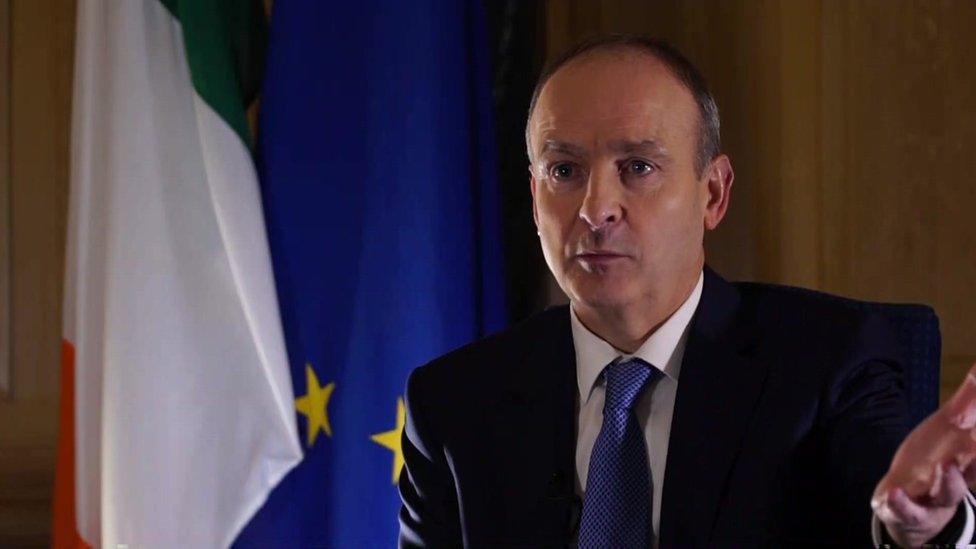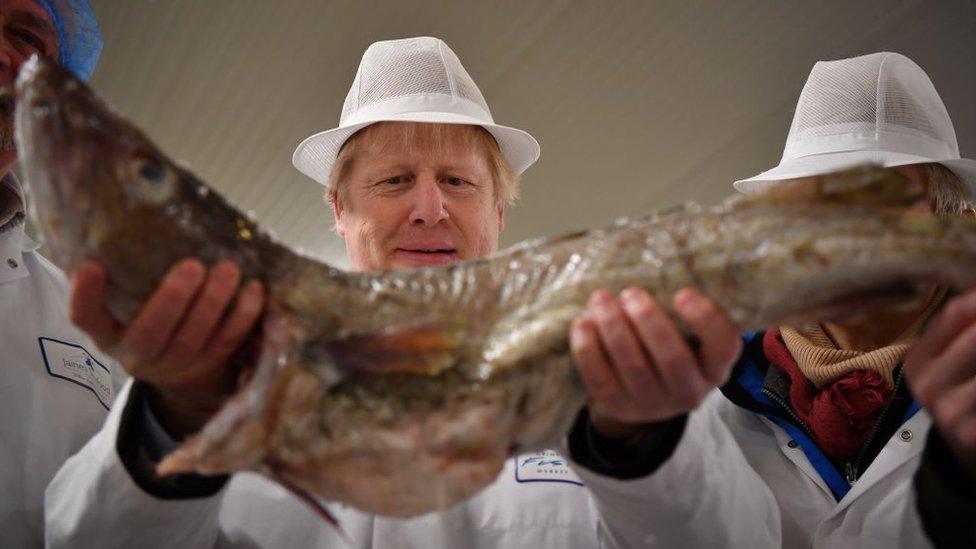Brexit: EU's 'penny is dropping' on UK sovereignty, says Gove
- Published
- comments
Gove: Government focused on delivering for British people
The "penny is dropping" in Brussels over the UK's post-Brexit status as an independent nation as the deadline for a trade deal nears, says Michael Gove.
The cabinet office minister told the BBC that British negotiators needed to see "movement on the EU side".
The two sides resumed talks in London this week, with a UK government source saying they were in the "final stage".
But gaps remain, such as on fishing rights, with the UK source saying the EU's position was "wholly unrealistic".
Negotiations are set to continue in Brussels next week.
'Patience'
"One of the arguments we have always made is that by choosing to leave the European Union we became a sovereign equal - and it's absolutely important that the EU recognise that", Mr Gove told the BBC's Political Editor Laura Kuenssberg.
"I think the penny is dropping but negotiations are going on at the moment in order to make sure that those final areas of disagreement are finally resolved."
Leaving the business department in central London, where the negotiations are being held, at lunchtime on Thursday, EU chief negotiator Michel Barnier said talks were an "ongoing process".
"Patience," he added.
He later tweeted a jokey reference to the EU demand for a "level playing field" on business subsidies between the UK and EU.
Allow X content?
This article contains content provided by X. We ask for your permission before anything is loaded, as they may be using cookies and other technologies. You may want to read X’s cookie policy, external and privacy policy, external before accepting. To view this content choose ‘accept and continue’.

Asked by Laura Kuenssberg, if the government thought the UK would be ready whatever happens, Mr Gove said that the UK's negotiating team is "on course to be ready to take advantages of all the opportunities of being outside the EU".
He added that the negotiating teams are "continuing to battle hard for the whole of the UK".
Prime Minister Boris Johnson has said he is prepared to move forward without a deal.
Speaking to the BBC on Wednesday, Irish Taoiseach Micheál Martin said the UK has to "knuckle down" to get a trade deal with the EU by the end of the year, when the Brexit transition period ends.
He also said failing to reach an agreement would be "very, very damaging all round".
The UK officially left the EU on 31 January, but has been in a transition period since then - following many of the bloc's rules while a trade agreement is negotiated.
That period is due to end on 31 December. If a trade deal is not agreed, the UK will trade with the bloc on World Trade Organisation rules - leading to tariffs being introduced on many imports and exports, which could push up costs for businesses and consumers.
Both sides say they want to avoid this outcome, but the the EU has said it will not do a deal "at any price", and Mr Johnson has said the UK will prosper either way.
If a deal is agreed, it would need to be signed off by MPs in the UK and parliaments across the EU before the end of the transition period to come into force by 1 January.
'Large differences'
Mr Johnson spoke on the phone to European Commission President Ursula von der Leyen on Saturday, agreeing some progress had been made in recent weeks after the EU agreed to discuss specific legal texts.
But Ms von der Leyen said "large differences" remained over the question of access to British fishing waters from 2021 and regulations on workers' rights, environmental protection, and state aid designed to maintain a "level-playing field".
The extension to the talks comes after a heavy defeat for the government in the Lords over its controversial Brexit legislation.
The Internal Market Bill contains measures that overrule parts of the UK's Brexit withdrawal agreement with the EU, and the government has said it could break international law.
The Lords voted to remove the sections, but the government has pledged to reintroduce them when the bill returns to the Commons.
- Published12 November 2020

- Published18 December 2020
